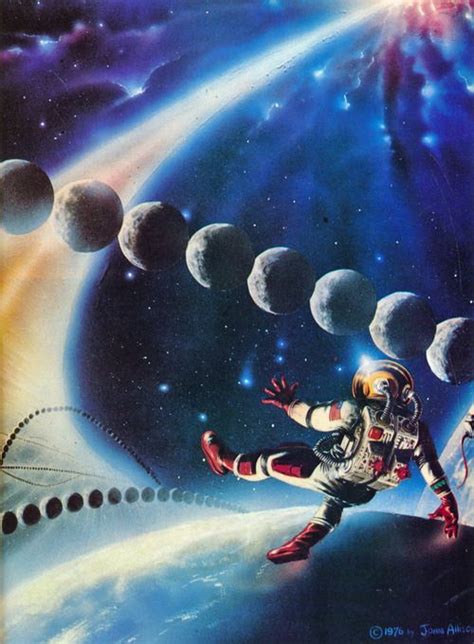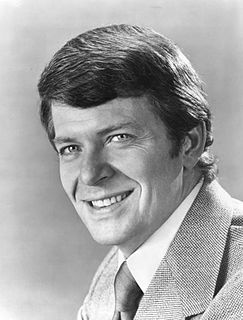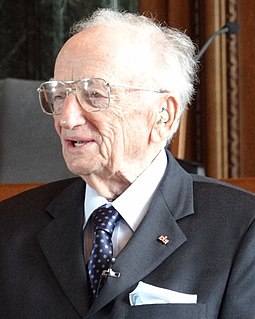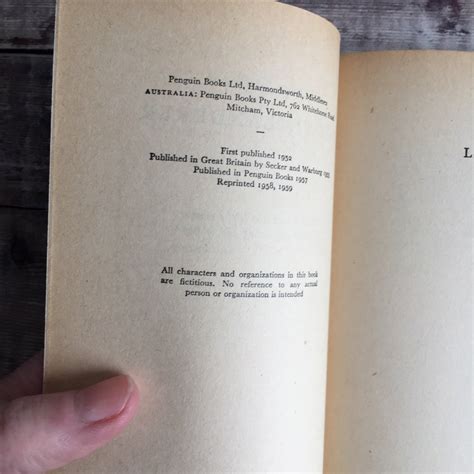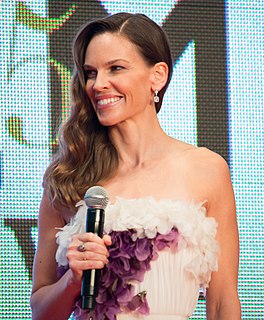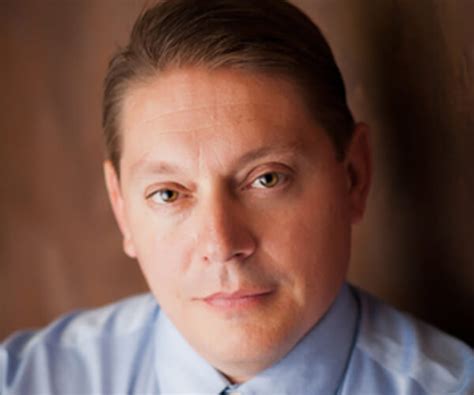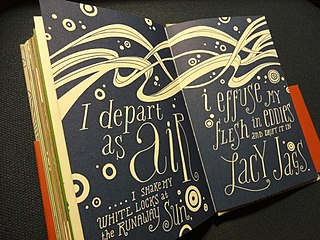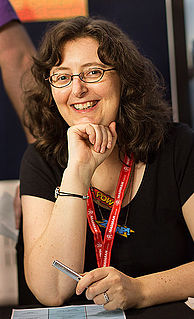Top 1200 Crime Fiction Quotes & Sayings - Page 18
Explore popular Crime Fiction quotes.
Last updated on November 17, 2024.
Gun laws are an attempt to nationalize the right of self-defense. Politicians perennially react to the police's abject failure to prevent crime by trying to disarm law-abiding citizens. The worse government fails to control crime, the more the politicians want to restrict individuals' rights to defend themselves. But police protection in most places is typical government work - slow, inefficient, and unreliable.
If suicide be supposed a crime, it is only cowardice can impel us to it. If it be no crime, both prudence and courage should engage us to rid ourselves at once of existence when it becomes a burden. It is the only way that we can then be useful to society, by setting an example which, if imitated, would preserve every one his chance for happiness in life, and would effectually free him from all danger or misery.
No matter how one approaches the figures, one is forced to the rather startling conclusion that the use of firearms in crime was very much less when there were no controls of any sort and when anyone, convicted criminal or lunatic, could buy any type of firearm without restriction. Half a century of strict controls on pistols has ended, perversely, with a far greater use of this weapon in crime than ever before.
Knowing what [Christ] knew , knowing all about mankind--ah! who would have thought that the crime is not so much to make others die, but to die oneself--confronted day and night with his innocent crime, it became too difficult to go on. It was better to get it over with, to not defend himself, to die, in order not to be the only one to have survived, and to go elsewhere, where, perhaps, he would be supported.
The novels are always morphing into something else now, some kind of hybrid, more of a ground that isn't so easily specified. I suppose you could call it creative non-fiction, and rather focused on the natural world, which is what I'm most interested in reading these days. At least that would be the closest thing, but my books also include some fiction, so they're difficult to pinpoint.
Writing fiction is very different to writing non-fiction. I love writing novels, but on history books, like my biographies of Stalin or Catherine the Great or Jerusalem, I spend endless hours doing vast amounts of research. But it ends up being based on the same principle as all writing about people: and that is curiosity!
I was in my senior year of high school when I read 'Notes From Underground' by Dostoyevsky, and it was an exhilarating discovery. I hadn't known up until that moment that fiction could be like that. Fiction could say these things, could be unseemly, could be unsettling and distressing in that particular way, that immediate and urgent way.
As you may know, my motto is: "All memory is fiction." It could just as easily be: "All fiction is memory." Unpacked, these two statements defy the ease of logic, but offer some really important truths about narrative art, at the very least, and about memory. So I would say that all art is personal.
We sometimes drive ourselves crazy with how our books will be "seen," when in fact we already know what they're about, and where our obsessions are. If we can spin those obsessions into fiction, then there's a decent chance they will be "fiction-worthy," as you call it. The idea of the "sweep of ideas" is a complicated one.
Why does anyone do anything? Belief. A belief that they are right and just in their actions. Abraham was willing to sacrifice his son, Isaac, because he believed that God had commanded it. To kill your son is unthinkable. A crime. But if you are acting in the belief that your God, your supreme deity whom you must obey, has demanded it of you, is it still a crime?
But [your crime] will be there, one hundred times denied, always there, dragging itself behind you. Then you will finally know that you have committed your life with one throw of the die, once and for all, and there is nothing you can do but tug our crime along until your death. Such is the law, just and unjust, of repentance. Then we will see what will become of your young pride.
What has happened here [aftermath of 9/11] is not war in its traditional sense. This is clearly a crime against humanity. War crimes are crimes which happen in war time. There is a confusion there. This is a crime against humanity because it is deliberate and intentional killing of large numbers of civilians for political or other purposes. That is not tolerable under the international systems. And it should be prosecuted pursuant to the existing laws.
..and certain that life consisted of a few simple signals and decisions; that death took root at the moment of birth and man’s only recourse thereafter was to water and tend it; that propagation was a fiction; consequently, society was a fiction too; that fathers and teachers, by virtue of being fathers and teachers, were guilty of a grievous sin.
Science fiction properly conceived, like all serious fiction, however funny, is a way of trying to describe what is in fact going on, what people actually do and feel, how people relate to everything else in this vast sack, this belly of the universe, this womb of things to be and tomb of things that were, this unending story.
Meanwhile, however, what’s most bothersome about Pulp Fiction is its success. This is not to be mean-spirited about Tarantino himself; may he harvest all the available millions. But the way that this picture has been so widely ravened up and drooled over verges on the disgusting. Pulp Fiction nourishes, abets, cultural slumming.
I'd be surprised if non-fiction writers hate to be interviewed. We all hate them, because there's really nothing to say except "Read the book." Right? At least with non-fiction, you can kind of convey some information, and people can decide for themselves whether they want more of that kind of information. But with a novel, what am I going to do?
It takes a disciplined imagination to acknowledge that the less personal savageries of bombs, missiles, artillery and heavy weapons are, to those blown to smithereens, also barbaric. The main horror of what the coalition is doing is not a matter of the occasional soldier who, in the heat of battle, commits a war crime, but the steady destruction rained on cities, villages, the Iraqi people. This violence is wreaked calmly, from a distance, within the rules of engagement. The war itself is the American war crime.
Science fiction [is] the kind of writing that prepares us for the necessary mutations brought about in society from an ever changing technological world and as a result. The mainstream hasn’t excluded SF; the mainstream has excluded itself. No one told Jules Verne he was a science fiction writer, but he invented the 20th century.
In the form of the oeuvre, the actual circumstances are placed in another dimension where the given reality shows itself as that which it is. Thus it tells the truth about itself; its language ceases to be that of deception, ignorance, and submission. Fiction calls the facts by their name and their reign collapses; fiction subverts everyday experience and shows it to be mutilated and false.
Homosexual behavior is a ground for divorce, an act of sexual misconduct punishable as a crime in Alabama, a crime against nature, an inherent evil, and an act so heinous that it defies one's ability to describe it. The homosexual conduct of a parent - conduct involving a sexual relationship between two persons of the same gender - creates a strong presumption of unfitness that alone is sufficient justification for denying that parent custody.
The UN special envoy on food called it a 'crime against humanity' to funnel 100 million tons of grain and corn to ethanol when almost a billion people are starving. So what kind of crime is animal agriculture, which uses 756 million tons of grain and corn per year, much more than enough to adequately feed the 1.4 billion human who are living in dire poverty?
The movement for women's liberation was about an emotional transformation, an explosion, a feeling all over the country that things must be different, and ideas about how they should be. I think fiction can capture that kind of thing better than other genres because in fiction you can explore the feelings of your characters - the before and the after.
I've felt pressure to produce long fiction for as long as I've been writing fiction. There's just an incredible bias in the publishing industry toward novels and away from short stories. They're seen as D.O.A. in the marketplace, which seems nuts to me, given that various collections done smashingly and deservedly well in economic terms.
Obviously, in marketing, the best tool is to show the autobiography in fiction. It's inevitable how that happens, but it's generic. Say I've written a story where my sister dies. 'Well, did your sister die?' No, she did not. But people use those straws to grasp at the difference between reality and fiction.
Truth is not only stranger than fiction, it is more telling. To know that a thing actually happened gives it a poignancy, touches a chord, which a piece of acknowledged fiction misses. It is to touch this chord that some authors have done everything they could to give you the impression that they are telling the plain truth.
While the machinery of law enforcement and indeed the nature of crime itself have changed dramatically since the Fourth Amendment became part of the Nation's fundamental law in 1791, what the Framers understood then remains true today - that the task of combating crime and convicting the guilty will in every era seem of such critical and pressing concern that we may be lured by the temptations of expediency into forsaking our commitment to protecting individual liberty and privacy.
I think that prog rock is the science fiction of music. Science fiction speculates on what the future might be and look like and how we'll get there, and yet there's always a central theme of humanity, or there should be. Progressive rock has the same concept of exploration into the parts of the music world that hasn't been explored.
He’s bound to have done something,” Nobby repeated. In this he was echoing the Patrician’s view of crime and punishment. If there was a crime, there should be punishment. If the specific criminal should be involved in the punishment process then this was a happy accident, but if not then any criminal would do, and since everyone was undoubtedly guilty of something, the net result was that, in general terms, justice was done.
Would God give a bird wings and make it a crime to fly? Would he give me brains and make it a crime to think? Any God that would damn one of his children for the expression of his honest thought wouldn't make a decent thief. When I read a book and don't believe it, I ought to say so. I will do so and take the consequences like a man.
In my view, nobody is really effective in tackling those organized crime networks that are making connections from Africa to Asia to fund and facilitate the poaching of massive volumes of ivory, and then selling it on the Asian market. Very few people have tried globally to tackle that serious organized crime threat that is also linked to militia groups. That needs to change. You need to bring the full weight of government attention to dealing with that.
Inspiration comes from so many sources. Music, other fiction, the non-fiction I read, TV shows, films, news reports, people I know, stories I hear, misheard words or lyrics, dreams... Motivation? The memory of the rush I get from a really good writing session - even on a bad day, I know I'll find that again if I keep going.
External realities - worlds of politics, economics, law, war, interpersonal and social relations - are part of prose fiction. Fiction also includes the realities of a character's interior language. Poetry can encompass the same realities, but in compressed, intensified language, which creates entirely different degrees of emotional force.







